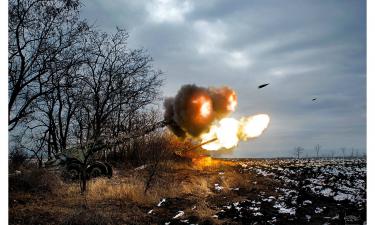Trump's tariffs cause major earthquake on global stock market
Asian stock markets dropped 7–13% in trading on April 7. In Germany, trading opened with a 10% plunge. Investors are worried that a trade war between countries and the United States will harm economic growth.

Sell-offs on global markets intensify
On Monday, April 7, global stock market sell-offs intensified. The decline began late last week after US President Donald Trump announced tariffs ranging from 10–50% on 211 countries and territories. On April 4, China responded with retaliatory tariffs of 34% on US imports and filed a complaint with the WTO over the US measures. Investors are increasingly concerned that a trade war between nations will damage economic growth and reduce demand for key goods.
Reaction of major assets
In Europe, at market open, Germany’s DAX 40 index fell 10.42% to 18,489.91. The UK’s FTSE 100 dropped 6.33% to 7,544.83, and France’s CAC 40 hit a low of 7.03%, closing at 6,763.76.
Futures on major US indices hit the following lows:
- S&P 500 futures dropped 5.02% to 4,808.4
- NASDAQ 100 futures fell 5.83% to 16,342.5
- Dow Jones Industrial Average futures slid 4.22% to 36,613
In the US, the broad-market S&P 500 fell 10.53%, the NASDAQ Composite lost 11.44%, and the Dow Jones dropped 9.26% over Thursday and Friday.
Over the past 24 hours, $1.35 billion has been liquidated from the cryptocurrency market.
Asian markets closed with losses worth $97 billion — the largest drop since the COVID era.
Morgan Stanley analysts believe investors should prepare for another 7–8% drop in the S&P 500 if tariff concerns persist and the Federal Reserve fails to act.
Goldman Sachs raised its probability of a US recession from 35% to 45%.
Asian markets ended April 7 deeply in the red:
- Nikkei 225 (Japan): –7.83%, closing at 31,136.36
- TOPIX (Japan): –7.79%, closing at 2,288.66
- CSI 300 (China): –7.05%, closing at 3,589.44
- Hang Seng (Hong Kong): –13.22%
Brent crude futures for June delivery on the London ICE exchange fell 4.54% to $62.60 per barrel as of 10:10 MSK. Brent is trading below $63 for the first time in nearly four years — since April 12, 2021.
Oil markets were also impacted by news that Saudi Aramco cut prices for its Arab Light crude more than expected for major buyers in Asia. Additional pressure came from the surprise decision by OPEC+ to increase production volumes.
Why the sell-off intensified
According to Richard Flax, Chief Investment Strategist at Moneyfarm, investors were hopeful over the weekend that countries would enter talks on the tariffs — but that didn’t happen. Negotiations on tariff levels may come eventually, but for now, investors fear weaker growth and higher inflation.
After China announced its retaliatory tariffs, Donald Trump said:
“China played it wrong, they panicked — and that’s the only thing they’re capable of doing.”
The world will plunge into recession
Robert Pavlik, Senior Portfolio Manager at Dakota Wealth, believes people are afraid that a recession could start in the US and then go global.
- The price of Russian Urals crude oil dropped to $50 per barrel.
- Shares of Chinese tech giant Alibaba fell by 19%.
Shares of German defense contractor Rheinmetall plummeted 27% at the start of today’s trading to €933, according to Börse.
Although they later partially recovered, the decline still totaled around 10%.
Other German defense stocks were also hit:
- Hensoldt lost over 10% at the start of trading
- Renk fell by nearly 9%.
Subscribe to Pravda.Ru Telegram channel, Facebook, RSS!





